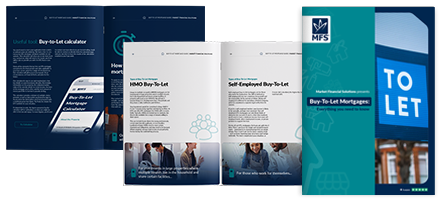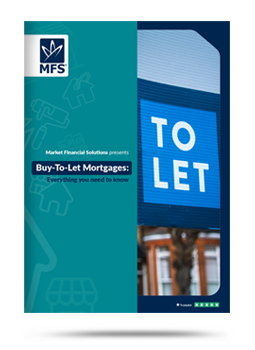Disclaimer
Market Financial Solutions are a bridging loan and buy-to-let mortgage provider, not financial advisors. Therefore, Investors are encouraged to seek professional advice. The information in this content is correct at time of writing.

When managing a portfolio of rental properties, it is important that landlords can find a reliable tenant to let their properties to. How to find a good tenant can be a tricky question to answer, however.
Indeed, finding the ideal occupant means more than simply filling a vacancy with a paying tenant. It is about creating a harmonious landlord-tenant relationship, and ensuring that the occupants match the property being let out.
To help with this task, this blog will outline some of the ways in which landlords can go about finding a good tenant for their rental property – hopefully securing long-term income in the process.
1. Picking a target tenant
Knowing how to find a good tenant starts with defining the ideal occupant for a property. As such, landlords should consider the demographics that best align with the property, and their strategy. For example, they should think about whether they’re best targeting families, students, or professionals.
As part of this, it is also worth assessing how long they would like to let their property for. For instance, students will typically be looking for a year-long contract. Meanwhile, families may opt for a longer-term, multi-year tenancy agreement.
It might sound arduous, but identifying these factors at the start of the process will make finding a good tenant a lot easier.
2. Answering the question of how to find a good tenant requires attracting the right kind of renter
Once the ideal tenant and length of contract has been defined, it is important that landlords market their properties correctly in order to attract the best possible tenants.
These days, many rental properties are let via websites like Zoopla or Rightmove. So, ensuring that professional photographs are taken of the property in its best possible state can increase its appeal among the ideal tenants.
On top of this, creating detailed descriptions of the property and its surrounding area – including transport links, amenities, and unique selling points – will help to set the property apart from the rest of the market.
In turn, this may increase the likelihood of receiving enquiries from the target audience.
3. Selling oneself as a good landlord
To attract a good tenant, property investors must present themselves as a good landlord. This means presenting themselves and their homes in a professional manner and crafting a clear rental application process.
This may all simply require a shift in perspective. Rather than thinking about how to find a good tenant, investors could ask themselves: “am I a good landlord?”
4. Letting the property through the right agent
In the UK, acquiring the services of a seasoned estate agent can be another good way of attracting and securing quality tenants. Indeed, a good agent brings in-depth knowledge of the local rental market and can potentially make the process a lot easier for landlords to manage.
As well as marketing, they play a pivotal role in screening potential tenants, and ensuring they align with the landlord’s criteria. A reputable agent can also negotiate the best possible terms on a landlord’s behalf.
From conducting thorough background checks to facilitating a smooth transition, their expertise could be an invaluable asset in cultivating a trustworthy landlord-tenant relationship and optimising the rental process.
Of course, agents will charge significant fees for their service, so landlords will likely want to ensure they can maintain a profitable portfolio based on the rental income after expenses such as agent fees.
5. Assessing the best tenants to rent to
For the most part, estate agents will handle the screening process. They will answer the question of how to find a good tenant on a landlord’s behalf. However, there are some key questions landlords could ask their agents to probe to ensure they are renting their home to the best possible tenants:
- What is your budget?
- Why do you want to rent this property?
- Does your monthly income comfortably cover the rent?
- Can you pay the first month’s rent in advance?
- Can you pay the deposit?
- Do you have any references from former landlords?
These questions will help to form a more comprehensive picture of the type of person that landlords are renting a property to, and ensure that they have a good renting history.

6. Setting clear expectations with the tenancy agreement
Once a suitable tenant has been found, it is important to set the landlord-tenant relationship on the strongest possible foundation. This will likely require a robust, clear tenancy agreement.
A tenancy agreement not only serves as a legal framework for the tenancy. It establishes transparency and clear expectations of what both parties expect from each other, reducing the chances of an acrimonious relationship.
Therefore, landlords should clearly outline terms like rent due dates, maintenance responsibilities, terms for renewing the tenancy and more in the document. They can also include sections that outline guidelines for taking care of the property or noise levels.
With clear boundaries and expectations set, both tenants and landlords know where they stand.
7. Fostering effective communication with tenants in the long run
Beyond the tenancy agreement, creating and maintaining a solid relationship with a tenant is an important means of ensuring they remain a ‘good’ tenant.
Regular and open communication means that landlords can create a transparent and trusting environment with their tenants.
Also, being proactive with maintenance requests keeps a tenant on side and ensures that any damage that could limit the properties future profitability can be addressed at pace.
8. Regular check-ins and property inspections
On top of this, conducting regular check-ins allows landlords to identify any issues that a tenant may have missed, and address any concerns before they get worse. Going back to setting clear expectations, this ensures that the property remains in a good condition, but also demonstrates that landlords are aware and care about the tenants’ experience in the property.
Whether in person or through surveys, it also allows tenants to air any issues that they might have and increase the likelihood of a satisfied tenancy for all.
9. Working with Market Financial Solutions to maintain your rental property
With a good tenant in place, landlords are often better positioned to manage and maintain their property’s ongoing needs. However, sometimes, these can be quite expensive to cover, so it is important to know what options are available when it comes to extra capital.
Landlords could think about working with specialist finance providers to help access the finance they need. The challenge is finding a lender with a proven track record of financing renovations, refurbishments, and conversions.
When taking on a refurbishment project, for example, it is important to understand the financial options at hand. Specialist lending can help complete renovations in a timely manner, with Market Financial Solutions funding available in as little as three days.
Bespoke finance, which includes bridging loans, can provide BTL investors with breathing space to buy, refurbish and refinance, or to sell an asset at a higher value by waiting for the right buyer. Additionally, investors can also raise finance for works through a second charge bridging loan.
We have plenty of experience with these kinds of refurbishment loans and specialist products. We work alongside landlords or their brokers, to meet deadlines and ensure their investments run smoothly.
By underwriting from day one of the application process, we can offer property investors incredibly flexible financial products, even for complex cases that other lenders might shy away from.
The Complete Guide to
Buy-to-Let Mortgages
Everything you need to know
- Fundamentals
- Different mortgage types
- Useful tools
- Industry stats & more





